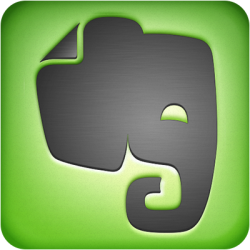Wealth gained quickly and without hard work brings many temporary friends but wealth gained over time with persistent hard work brings many permanent enemies.
Genie.
E.Badal
| Retrieved from: University of Fraser (http://blogs.ufv.ca/cmns) |
 |
| Retrieved from:theoldguys.blogspot.com |
 I’ve had the opportunity
this week to explore the use of Voice Threads in my ADED 1P32 class. This
allows collaborators to connect on specific topics of interest. Your
contribution can be made by registering to the forum and comment using Voice
recording, Video recording or text input. This can be used with great success
by a community of learners who wish to share information or engage in dialog
with peers on any topic of interest.
I’ve had the opportunity
this week to explore the use of Voice Threads in my ADED 1P32 class. This
allows collaborators to connect on specific topics of interest. Your
contribution can be made by registering to the forum and comment using Voice
recording, Video recording or text input. This can be used with great success
by a community of learners who wish to share information or engage in dialog
with peers on any topic of interest.  I've been
on the user end of wiki's thus far; mainly learning from Wikipedia. I've never
contributed to the wikis but I do appreciate the insight gained from the wealth
of knowledge out there. In the case of Wiki's, the knowledge that is being imparted to
the end user comes from a diverse authorship as opposed to one body. This
allows for a broader view of topics through different lenses.
I've been
on the user end of wiki's thus far; mainly learning from Wikipedia. I've never
contributed to the wikis but I do appreciate the insight gained from the wealth
of knowledge out there. In the case of Wiki's, the knowledge that is being imparted to
the end user comes from a diverse authorship as opposed to one body. This
allows for a broader view of topics through different lenses. Alongside the embracing of new technologies,
I recognise that there comes Digital Rights and Responsibilities. They are the
"privileges and freedom extended to all digital technology users, and the
behavioral expectations that come with them" (Ribble & Bailey,
2007). Using technology responsibly involves an understanding of
many issues. We want to be safe and act responsibly when using technology,
therefore we must understand the rules for technology and act morally,
ethically and legally to have positive online experiences.
Alongside the embracing of new technologies,
I recognise that there comes Digital Rights and Responsibilities. They are the
"privileges and freedom extended to all digital technology users, and the
behavioral expectations that come with them" (Ribble & Bailey,
2007). Using technology responsibly involves an understanding of
many issues. We want to be safe and act responsibly when using technology,
therefore we must understand the rules for technology and act morally,
ethically and legally to have positive online experiences.  Ever since I was a child, I heard the saying that
"an elephant never forgets". It would seem only logical then that I chose the app that used an
elephant in its branding to assist me in remembering and keeping track of
everything that I had to do!
Ever since I was a child, I heard the saying that
"an elephant never forgets". It would seem only logical then that I chose the app that used an
elephant in its branding to assist me in remembering and keeping track of
everything that I had to do! Lets Scoop.it ! ...And so I did.
Lets Scoop.it ! ...And so I did..jpg) |

